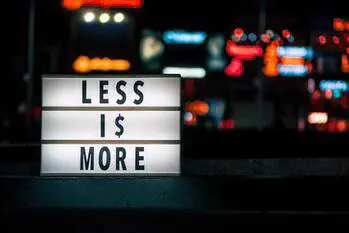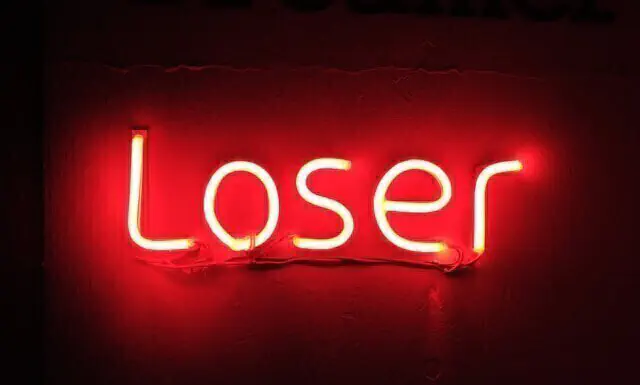3 Epiphanies Of Resilient Traders
By Galen Woods ‐ 5 min read
Resilient traders learn the true nature of trading and know what to focus on. Trading requires more than time and effort. It requires a shift in mindset.

Most people who try trading find it to be a demanding activity. It’s not surprising as trading presents unique challenges to our default thinking patterns. Overcoming these hurdles requires us to go against our many preconceptions and instincts. Hence, mindset shifts are critical to becoming a resilient trader who can stay in the game long term.
Many traders learn it the hard way. They trade and fail.
They persist.
Then, finally, they get the epiphanies that help them punch through their performance ceiling.
Here, let’s talk about three critical epiphanies that resilient traders have:
- Trading more does not mean making more money.
- Losing a trade does not mean you’re a terrible trader.
- Planning for losses is more important than planning how to win.
These three points might not be intuitive and sound outright wrong to some traders. But stay with us, and perhaps you’ll change your mind.
#1: Trading more does not mean making more money.
The desire for constant action irrespective of underlying conditions is responsible for many losses in Wall Street even among the professionals, who feel that they must take home some money every day, as though they were working for regular wages.
Most jobs pay you by the hour or need you to be present for a minimum period. Working overtime pays more. Taking on more projects leads to higher income.
Hence, it’s natural to assume that trading more means earning more.
But, nope.
Trade More = Earn More
As a trader, you are rewarded by the quality of trades you take. Moreover, you are not paid by the number of trades you take or the time you spend trading.

Most traders are still anchored by the conventional idea of “more is better.” This phenomenon explains why overtrading is such a common problem.
Once you realize this fact about being a trader, you will:
- Appreciate the value of patience
- Restrict yourself to taking the best trades
- Stop trading when you are not focussing well (Why can’t you focus?)
As a result of these changes, you become a more resilient trader.
#2: Losing a trade does not mean you are a terrible trader.
How do you feel when you exit a trade with a loss? Not great?

Because it does not feel good, you start to adjust your behavior when you encounter losses. You want to avoid losses, and you think of losing trades as a bad thing.
So you start to avoid losses at any cost.
This is the first step toward a wild goose chase for the Holy Grail.
To avoid this destructive spiral, understand this:
There’s no trading strategy with a 100% win rate.
Hence, by definition, trading involves losing. Losing is an essential part of trading for a living.
Therefore, trading is about losing correctly.
You want to lose. __Provided that you are losing as part of a method that generates profits over time.
It means that losing trades do not make you a bad trader. It’s how you lose.
Let’s look at a business analogy. You would not worry about the cost of goods if you are confident that you can sell them for a profit. (Cost of goods being your losing trades here.)
If you fixate on reducing your cost of goods to zero, there is only one outcome. Your business stops.
Hence, the only way to avoid losing trades is not to trade. Instead, accept trading and accept losing.
#3: Planning for losses is more important than planning how to win.
New traders start by constructing a trading plan to win. It grabs their entire focus. And it’s tough to convince them otherwise.
But at some point, their trading account goes bust. Then, these traders look back and, in hindsight, realize they failed because they did not plan how to lose.

Planning how to lose is the key to longevity in the market.
Planning for losses is not as simple as setting a stop-loss.
Planning for losses means:
- Limiting your position exposure.
- Understanding the drawbacks of risk management approaches (E.g., stop-losses are not guaranteed.)
- Having an action plan to stop trading when losses are affecting your psychology.
- Knowing when mounting losses reflects a flaw in your trading strategy.
- Limiting the impact of your losses on your financial health ( even beyond your trading account).
This list is not exhaustive. But it gives you a sense of what to focus on when you design your trading plan. Think of all the ways you could lose, and plan what to do in each scenario.
When you lose, you have two options. You lose in a calm and controlled manner. Or you lose your mind and freak out.
The desired choice is clear; planning to make the right choice makes you more resilient.
Instant Epiphanies? Are You A Resilient Trader?
Now you are ready for long-term success in the market.
No. Not so fast.
This discussion sets the stage for you to do some essential pondering.
The thing is, you don’t read epiphanies. Instead, they are what you get when an idea suddenly clicks in your mind, and you internalize a fresh viewpoint.
You’ll know it when it comes.
The article was first published on 9 November 2018 and updated on 12 July 2022.